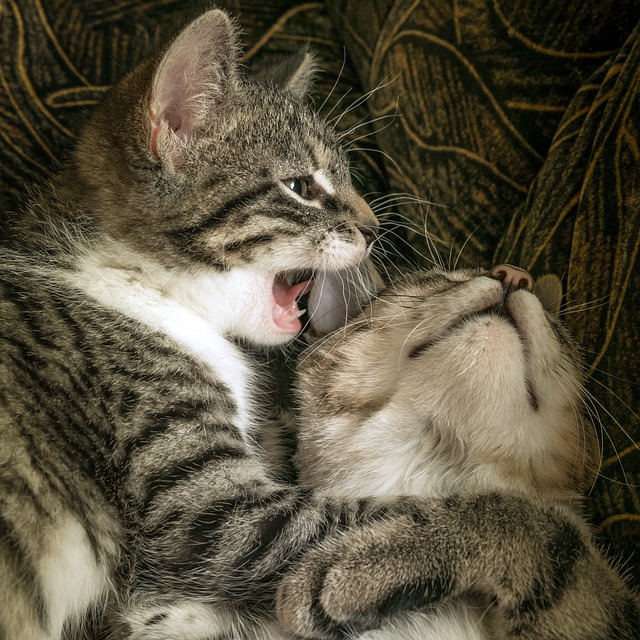Introducing a new kitten to your household is a thrilling and affectionate occasion.. However, as any new pet parent knows, deciphering the reasons behind your kitten’s cries can be challenging. Like infants, kittens communicate through vocalizations, and each meow may signify a distinct need or emotion. To ensure the well-being of your feline friend, it’s crucial to understand the potential reasons behind their cries.
1. Loneliness and the Need for Companionship: Kittens are inherently social beings that crave attention and interaction. If your kitten is crying persistently, they might be expressing loneliness. This is especially common in single-kitten households or if they were recently separated from their mother and siblings. To address this, carve out dedicated playtime each day, providing mental and physical stimulation. If feasible, consider adopting a second kitten to offer companionship and alleviate their sense of solitude.
2. Lost or Confused in a New Environment:
A young kitten may find the process of adapting to a new home to be overwhelming. The unfamiliar surroundings may lead to confusion, causing your kitten to cry. To ease their transition, confine them to a smaller, comfortable space initially, gradually expanding their territory as they become more confident. Creating a secure “home base” helps them feel grounded and reduces anxiety about navigating a vast, unfamiliar area.
3. Hunger Pangs and Feeding Schedule: Similar to human babies, kittens cry when they’re hungry. If your kitten is vocalizing around mealtime, reassess their feeding schedule. Unlike adult cats, kittens need to eat more frequently to support their rapid growth. Offer ample amounts of wet food to ensure they receive the necessary nutrients. As they mature, a more structured feeding schedule can be established.
4. Bathroom Troubles and the Litter Box: Kittens may express discomfort or confusion during their early experiences with the litter box. While it’s normal for kittens under eight weeks to meow before or during defecation, persistent crying or signs of distress warrant attention. Monitor their litter box habits, and consult a veterinarian if there are concerns about constipation, diarrhea, or other gastrointestinal issues.
5. Pain or Injury: Distinctive, high-pitched cries can indicate physical pain or injury. If you hear such cries, immediately assess your kitten’s surroundings for potential hazards. Check for any signs of an injury, such as a limb stuck in an uncomfortable position or a tail being stepped on accidentally. If the source of pain is unclear or if the cries persist, seek prompt veterinary attention to ensure your kitten’s well-being.
6. Sickness or Discomfort: A kitten’s cries can also be a signal of underlying illness. Changes in behavior, lethargy, or persistent crying may indicate distress. While cats may not always express illness audibly, any significant shift in behavior should be carefully monitored. If your kitten appears sick or exhibits unusual behavior, consult a veterinarian promptly for a comprehensive examination.
Understanding your kitten’s cries is a crucial aspect of responsible pet ownership. By addressing their needs promptly and providing appropriate care and attention, you’ll foster a strong bond with your furry companion and ensure their health and happiness in their new home.



